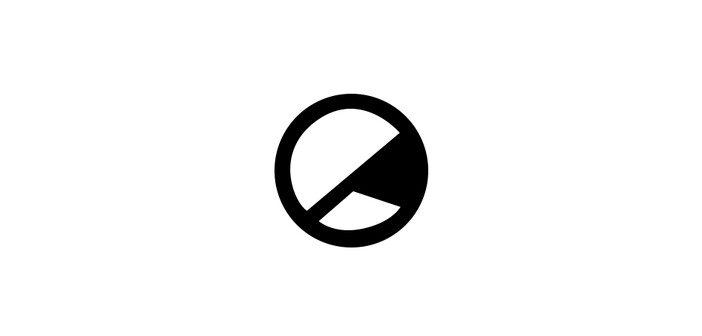Yes, yes, yes, we’ve all heard the generic criticisms of the Fantastic Four remake which flew into cinemas this year: too much CGI, too little story development; too much use of superficial special effects at the expense of dialogue, continuity and, most importantly, audience engagement. It was these criticisms which surfaced from the critics’ first viewings and were then kept in the minds of the audiences going to see the film after.
The announcement of Fantastic Four, released as a reboot in August 2015, met with tired eyes and raised eyebrows and a chorus of “Really? Again? We’re doing this again?” Yet as time went along, and with the addition of Chronicle director Josh Trank, the hype inevitably built up. After all, it’s a superhero film and let’s be honest here, there’s not one of us who isn’t a sucker for two hours of capes, masks and justice. “Let us at it!” We chimed, and at it we went – and we went at it hard.
The film follows Miles Teller’s Reed Richards as he creates the world’s first functioning teleportation machine which, inevitably, attracts attention from the country’s leading scientists who just so happen to be working on the exact same thing and are attempting to transport living beings to the world it reaches. Brought in to work on the project by Professor Franklin Storm (Reg E. Cathey), Reed joins Storm’s children, Sue (Kate Mara) and Johnny (Michael B. Jordon), and the equivocal Victor von Doom (Toby Kebbell) in their work. When they reach the planet, things inevitably take a turn for the worse and we are left with four college kids with severely, severely altered body chemistry and a (presumed) dead Victor von Doom. Predictable, yes. Tedious? Definitely not. Slated? Definitely, unequivocally yes.
Although the film undoubtedly has its many faults, the effect they had on the primary audience overshadowed the many other great moments the film offered. As these opinions travelled to those who hadn’t yet seen it, they were left unable to concentrate on anything but the faults already pointed out, leaving them completely helpless in forming some kind of individualised opinion. Too much attention was paid to the continuity errors, the lax use of special effects, the somewhat stilted relationships between our five main characters, and not enough to the fact that we are looking at a Hollywood Marvel superhero film. Are we really expecting such sophistication from Marvel as we do of, say, a Hitchcock picture or a Scorsese movie? After all, the creation of Marvel films could easily be compared to the assembly line: we are getting more than nine Marvel pictures in 2016-19 alone. Somewhere in that process an aspect of art must be lost.
Yes, the film does exploit our modern day advantage of our ability to use computer-generated imagery to the extent that at points it does appear somewhat inane. A quick look at the film’s fiery climax confirms that. And yes, at points its use do take away considerably from the narrative in the moment, more of a distraction than an aesthetic advantage. However, how big of a deal is this in comparison to its blockbuster neighbours? The Avengers, Mad Max, The Hunger Games, each one of them uses CGI to an excess. Granted, each also uses it to a far more integrated level, but none are completely from the awareness of its use within the films. Take the climax of The Avengers for instance: as Tony Stark saves the day once again or once and for all, he plummets to his supposed death; the death of a hero. And what accompanies the hero? Violence and fire and explosions – the trademark convention of a superhero blockbuster. All created and manipulated to an absolute by the powers of CGI. Indeed, Fantastic Four is only conforming to what is expected of its genre.
It is only the fact that its use of special effects are exaggerated to a state which frames its use rather than its effects on the narrative which betray its supposed superficiality. Altogether, the story remains practically unaffected by the use of CGI. There are far worse crimes a film can commit.
Too many people also forgot the very premise of the Fantastic Four remake – specifically, it being presumably the first in a series, much like many other Marvel creations. It is literally an origin story of not just one character, but four major ones. Need I remind us all that those who argue the case of the Avengers as the superior comparison to the Fantastic Four don’t appear to consider the separate origin stories nearly all the characters had prior to their assembling as a super-group. Fantastic Four had the task of developing its characters with no prior set-up and, under the demarcations of a major feature film, it did a pretty good job of it too. Perhaps the character development was not clear because the very purpose this film has is to set-up. If audiences were patient enough, that character, theme and further plot development would come in future sequels.
That is, if they’re willing to give these future sequels more of a chance than this and don’t simply regurgitate the opinions of critics before they’ve had a chance to form even one of their own.
Predictable, forgettable and depending probably too much on genre conventions, Fantastic Four didn’t amaze anyone. It wasn’t mind-blowing like Age of Ultron, it wasn’t eye-opening like Chronicle, and it didn’t transcend any boundaries with shock or clever use of violence like Kick-Ass. But it also didn’t disappoint in terms of pure entertainment. It wasn’t revolutionary but it had me hooked for its 100 minutes of screen time and, to be frank, that’s a success for a film that doesn’t pretend to be anything else.
Fantastic Four (2015), directed by Josh Trank, is distributed in the UK by Twentieth Century Fox, Certificate 12A.




